A young girl has just sprung out from a nearby photo booth—converted from an old VW bus and hired just for this occasion. Souvenir photo strip in hand, she’s bounced over to ask for an autograph from a local celebrity—new elementary school principal, Don Hakala.
While school principals don’t often claim the mantle of rock star, improving education for the kids of Yoncalla has been taking center stage, with demonstrated progress over the last seven years that continues to build the case for community-driven, collaborative initiatives like Early Works.
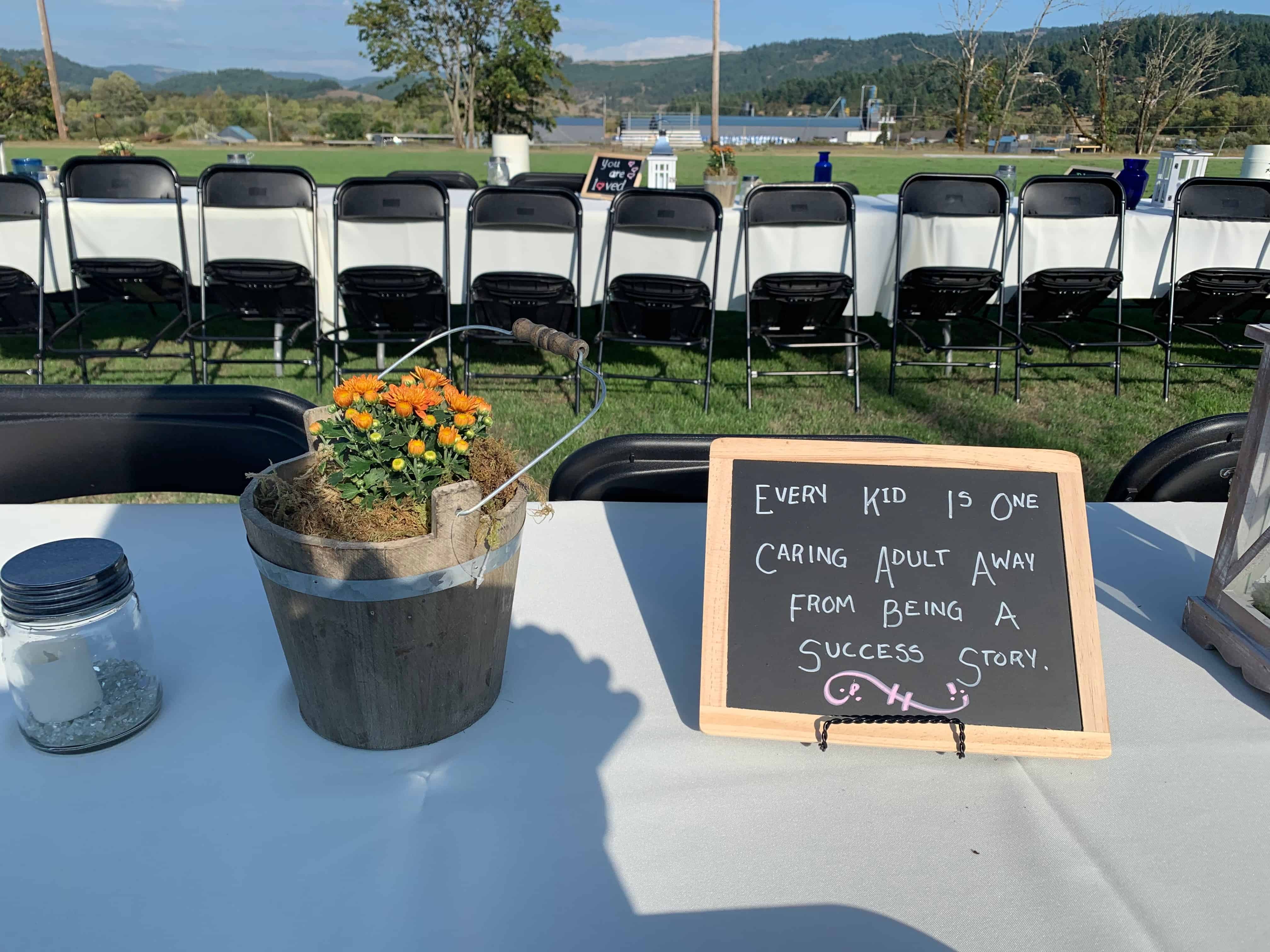
A Maverick Streak
As picturesque as Yoncalla is, this small town of just over 1,000 people in North Douglas county struggles with challenges facing many rural Oregon communities; high unemployment and poverty rates, inadequate access to health care and limited access to high-quality early care and education programs.
It’s also a place of deep history, with an electorate that’s not afraid to show off a maverick streak now and again. In 1920, two months after women gained the vote, Yoncalla made national headlines for electing an all-female city council. Last year, Yoncalla voters elected a teenage mayor, 18-year-old Ben Simons.
So perhaps it’s not surprising that Yoncalla, with its demonstrated openness to new ideas and tight-knit community, might actually be a great place to nurture and support educational innovation for its youngest citizens.
A Collective Effort
At the local community center, more than 70 people stand shoulder-to-shoulder preparing to introduce themselves at the annual Early Works and Yoncalla School District retreat, a gathering to help prepare for the upcoming school year. Classroom teachers and school administrators are here, of course. But so are parents, school kitchen and custodial staff, and a representative from the local breastfeeding support group.
There are school board members, instructional assistants, and representatives from the newly opened health clinic in Drain. In fact, there are so many people that organizers have to pull out extra chairs from a back room to squeeze in among the tables.
Over the next few hours, these community members and partners are engaged in a sort of educational barn raising—reviewing data, brainstorming ideas on how to overcome health-related barriers to school attendance, and discussing how to improve teacher-parent engagement in upper grades.
Christy Cox, senior program officer for The Ford Family Foundation is excited by what she sees as the growth and transformation of the project. “As the kids and families involved with Early Works move into the elementary, middle, and high school grades, they are bringing the values and guiding principles of Early Works with them.”
Cox notes that while Early Works was originally focused on children ages 0 to 8, the leadership of Yoncalla Superintendent Brian Berry, teacher Jerry Fauci, and others have expanded the vision to a broader community of staff, parents, and community partners. This expanded effort now includes support for kids from prenatal to grade 12.
“It’s so gratifying to see how far we’ve come, ” said Erin Helgren, Children’s Institute’s Early Works site liaison. “And it inspires us to continue to work, improve, and do more.”
A Focus on Attendance and Engagement
Data presented by researchers at Portland State University shows solid progress on family engagement and attendance in Yoncalla over the last five years:
- The percentage of families reporting that they feel connected to the Yoncalla community has more than doubled among students in preschool through sixth grade.
- The percentage of families who feel welcome at the school is also climbing, as are increases in the frequency of parent-teacher communication.
- The percentage of regular attenders has steadily increased for K–12 students, bucking a statewide downward trend.
- Though regular attendance among Yoncalla kindergarteners is still lower than the state average, the gap has narrowed by 14 percentage points since 2014–2015. Among preschool students, the percentage of regular attenders has increased 21 percent in the last three years.
Meet the Community
A community-wide responsiblity to Yoncalla’s children means everyone has a role to play in education.
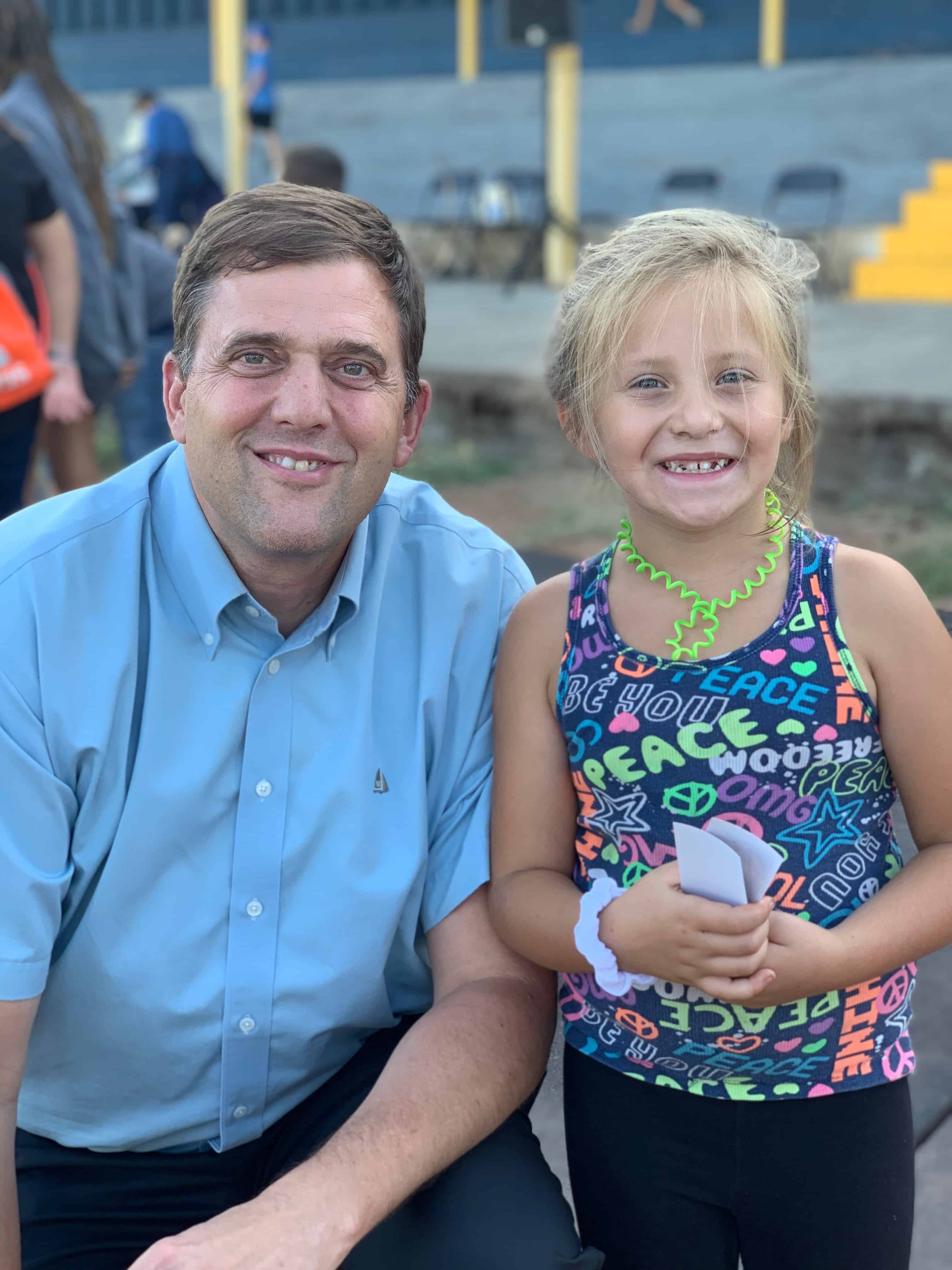
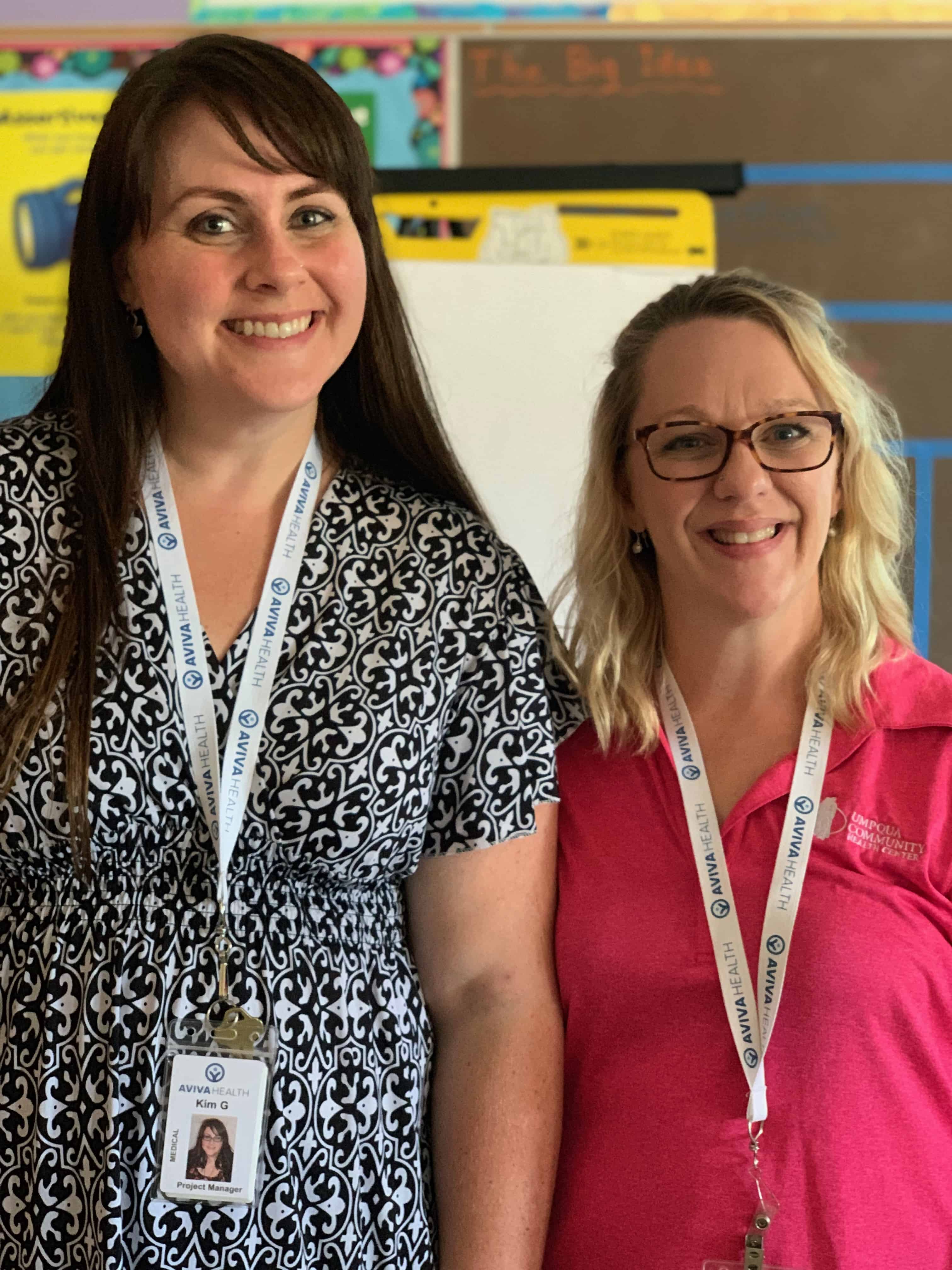
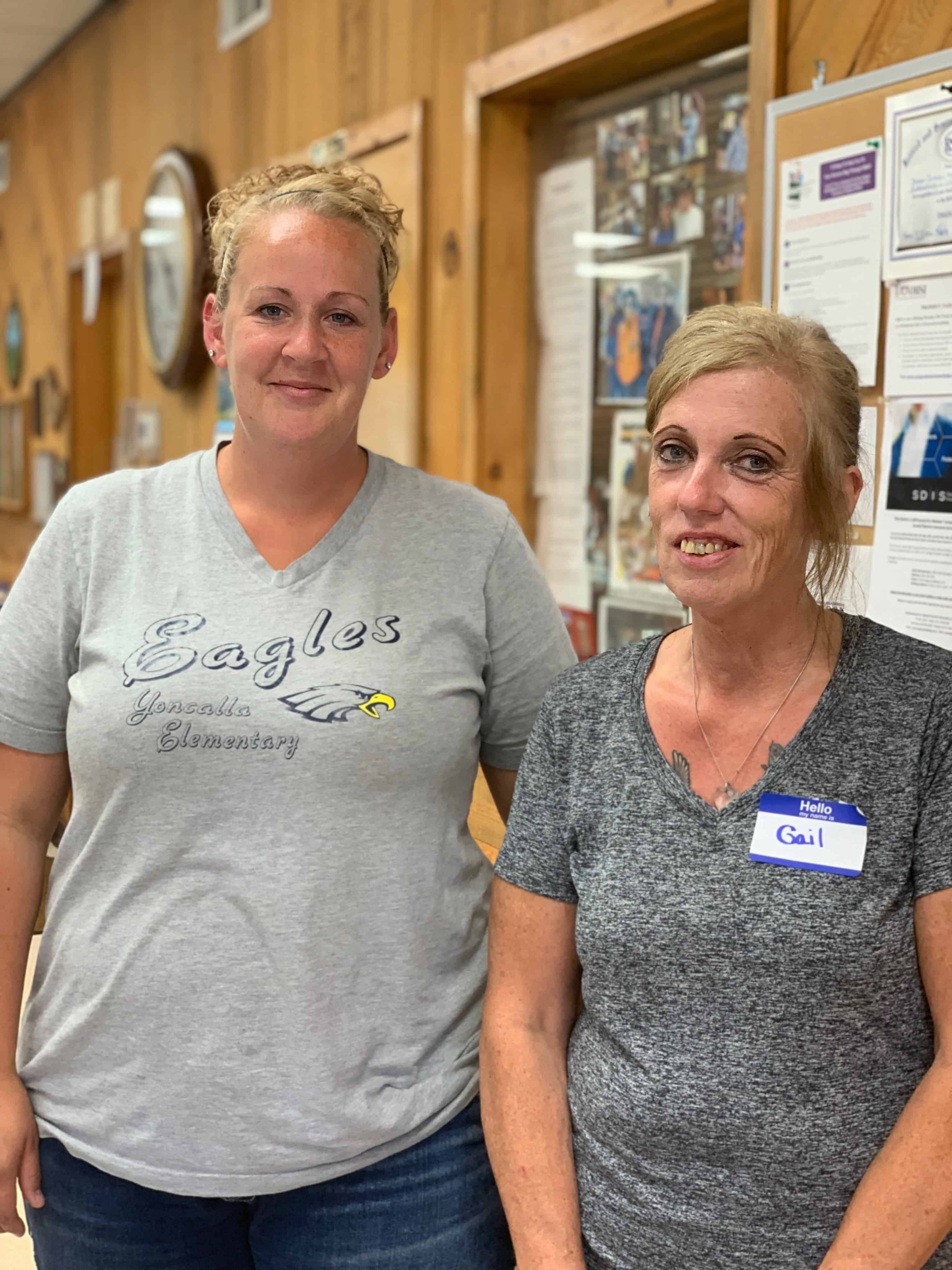
Don Hakala, Yoncalla Elementary Principal and friend
Kim Gandy and Kendra Bickham, Umpqua Community Health Center
Melissa Peterson and Gail Jones, Yoncalla Elementary School Kitchen
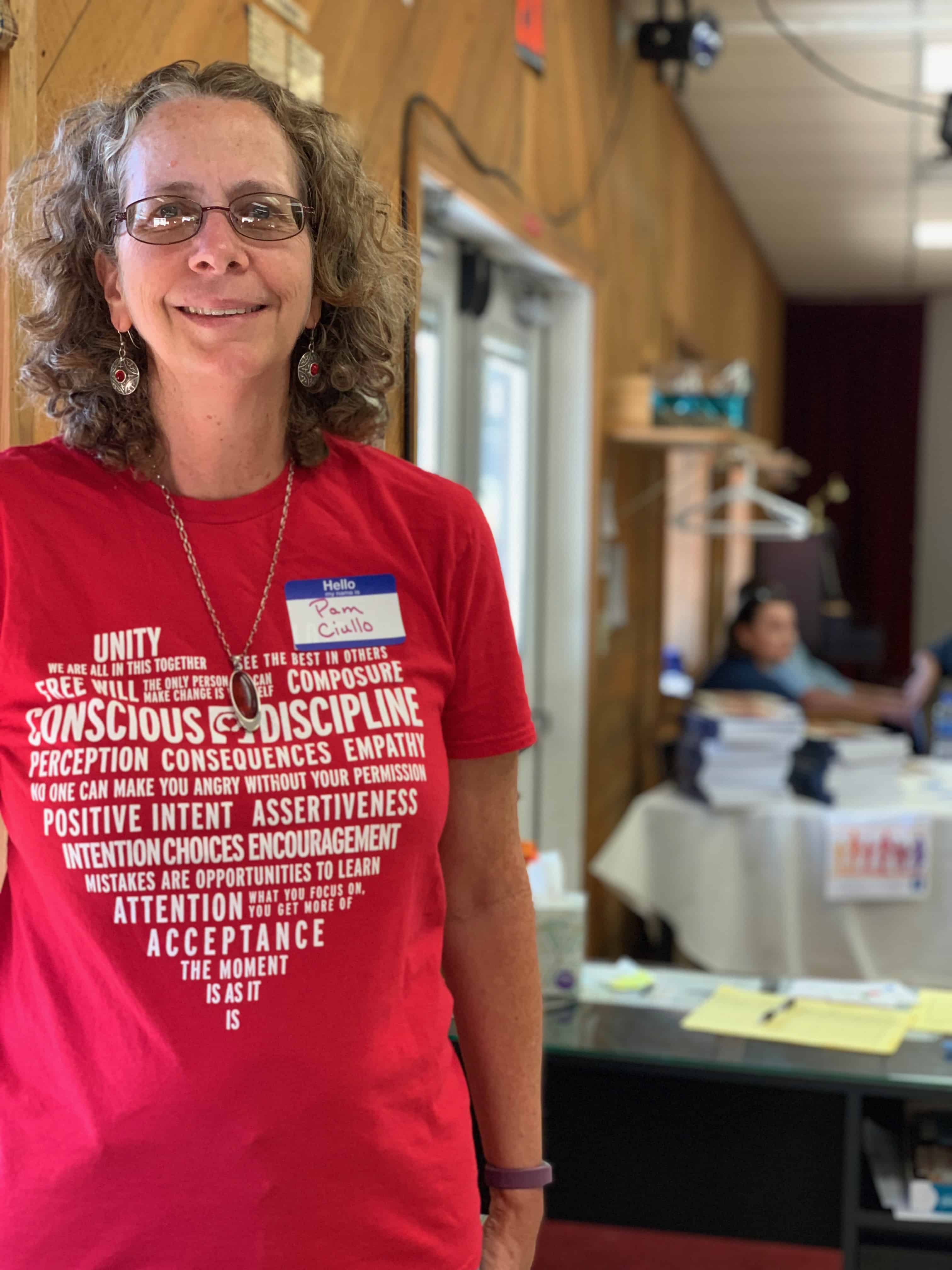
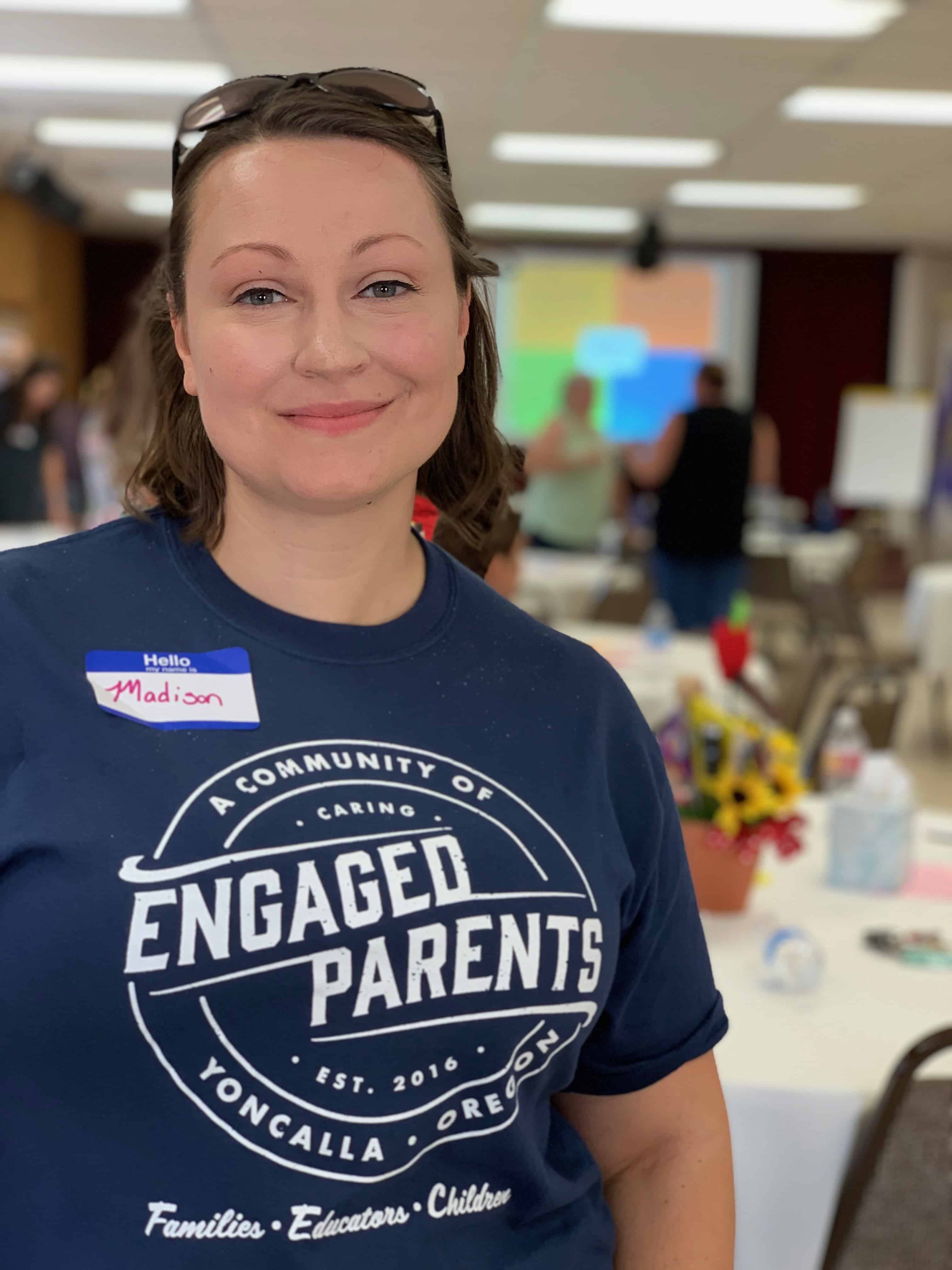
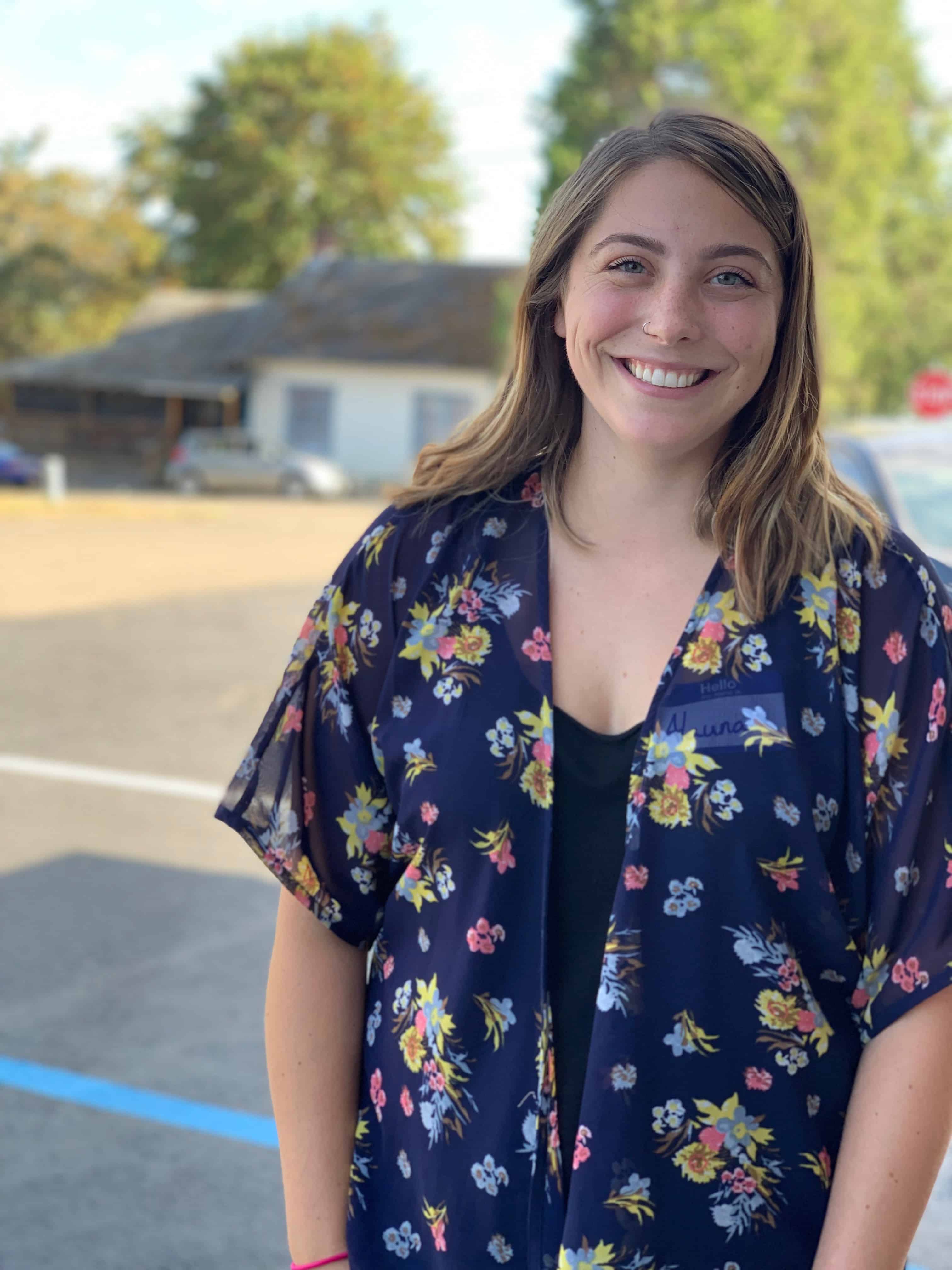
Pam Ciullo, Sixth Grade Teacher
Madison Kokos, Parent
Alauna Bowen, Kindergarten Teacher
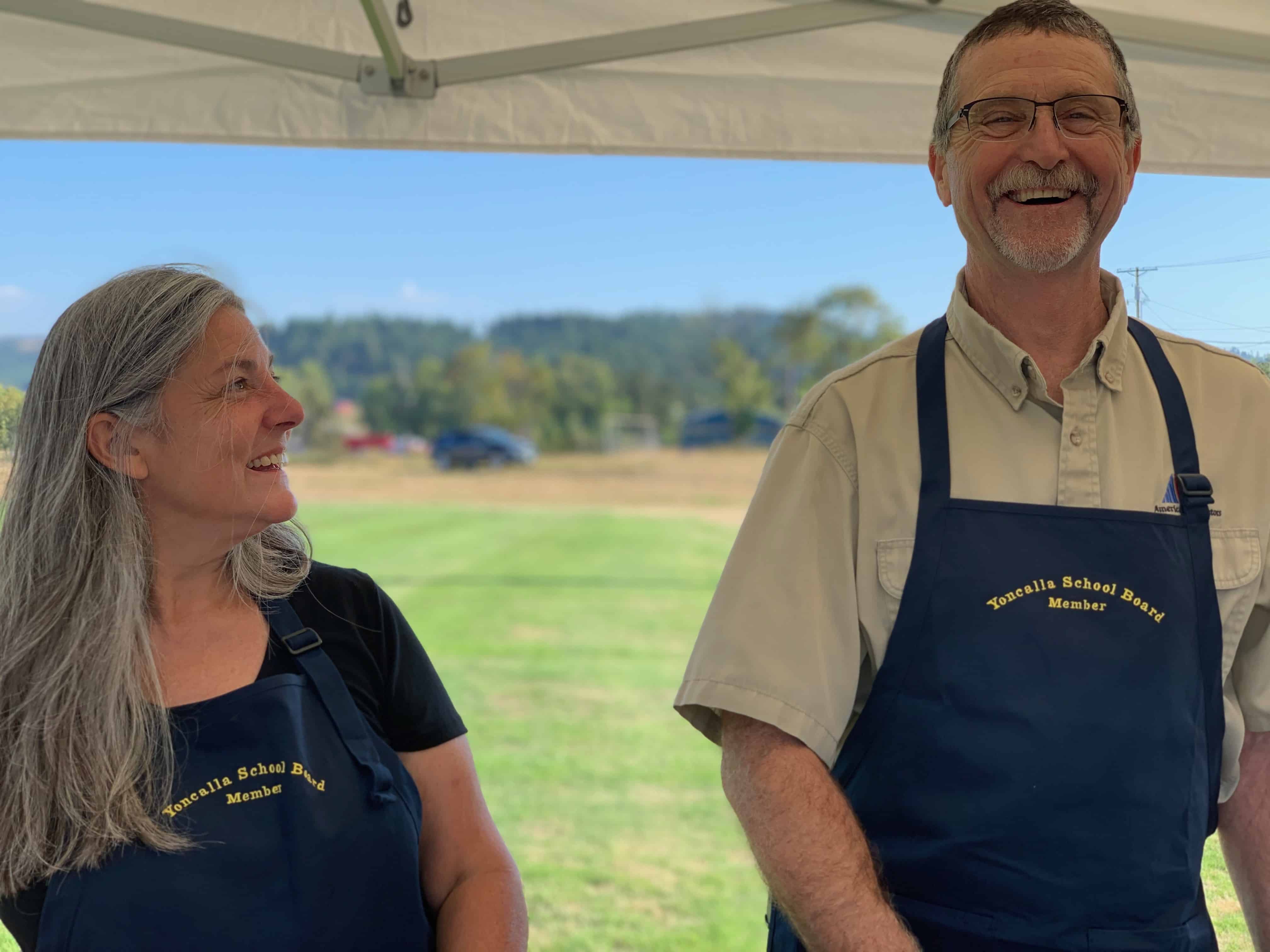
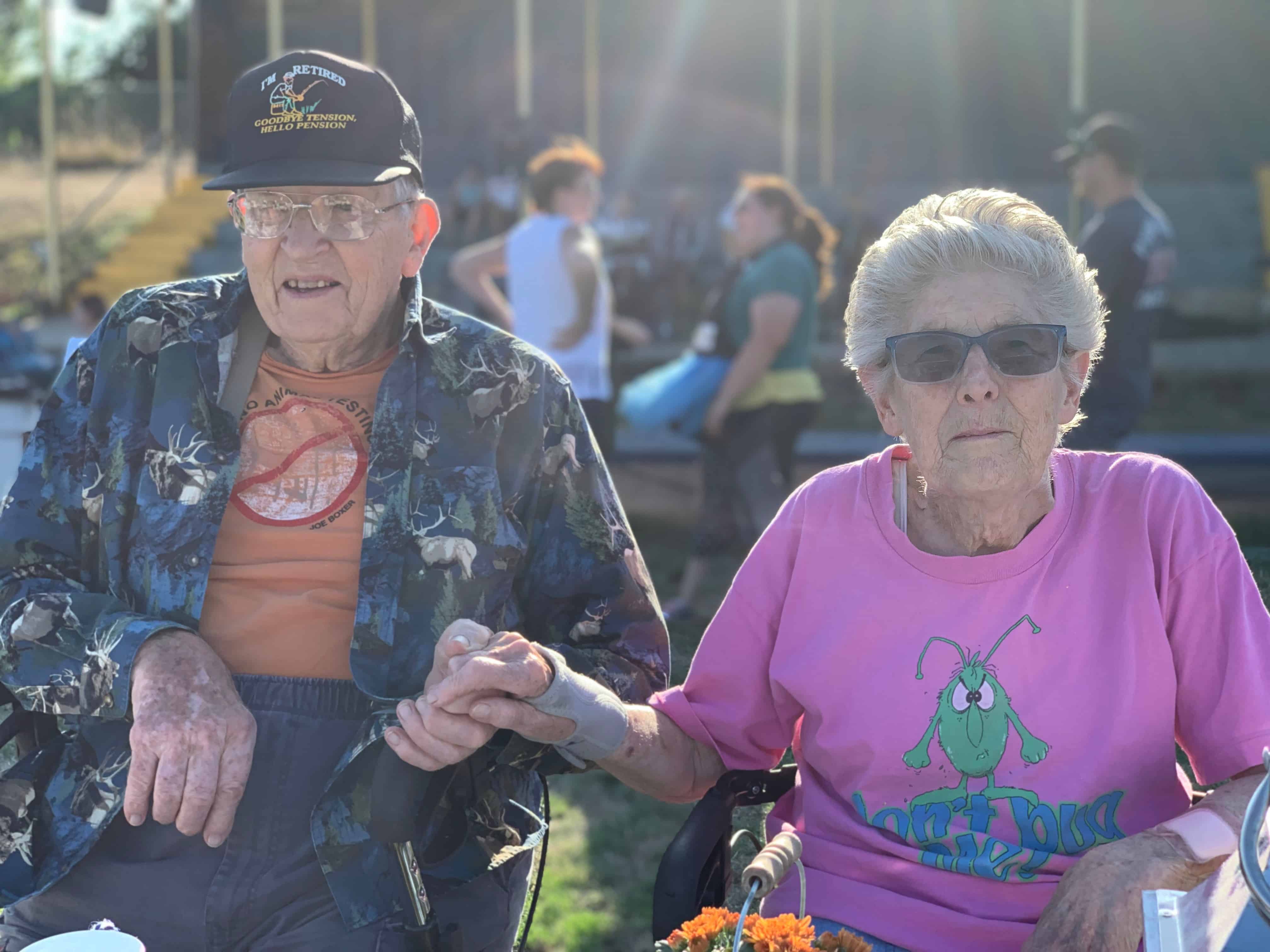
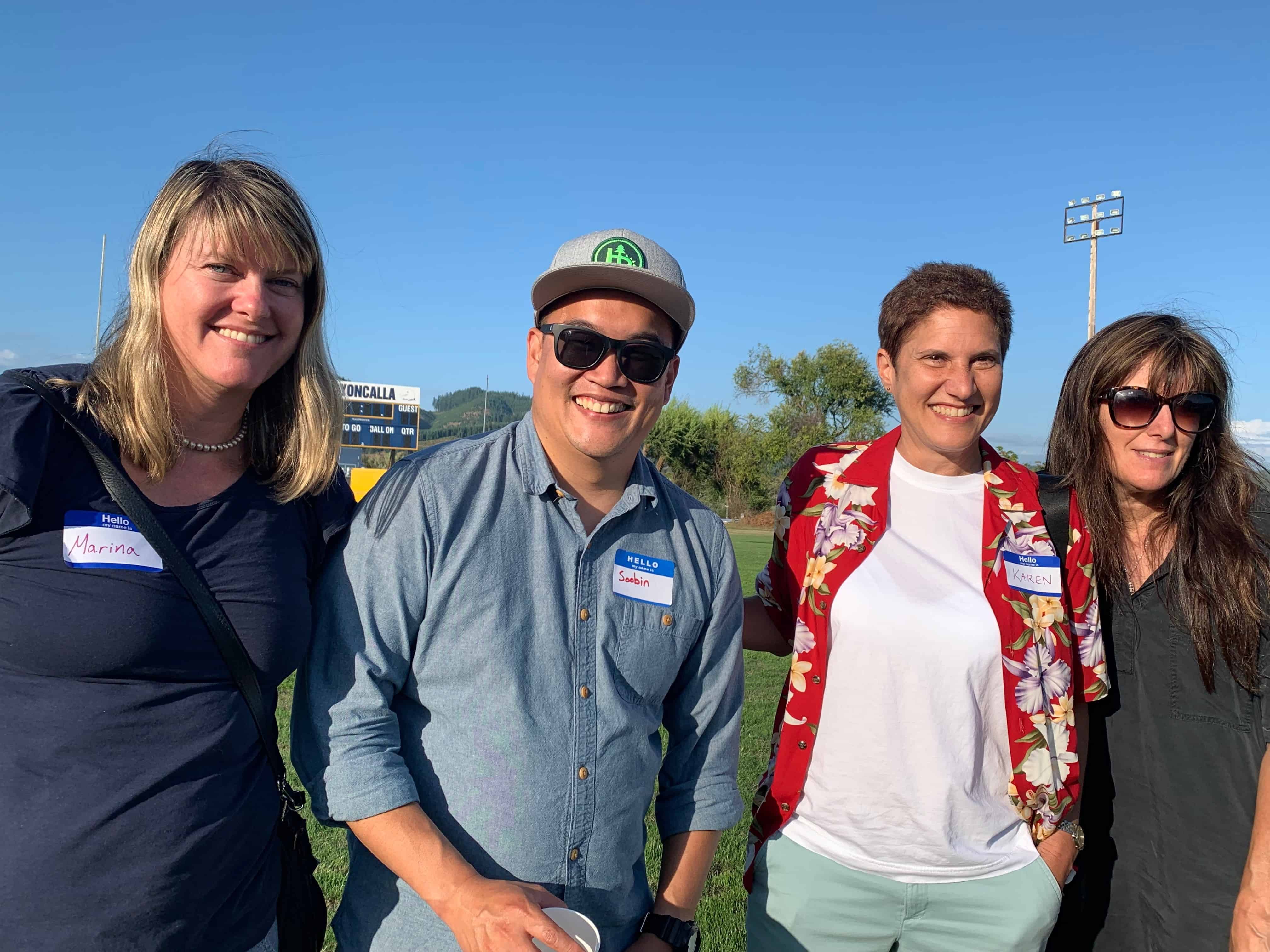
Yoncalla School Board Members
Sheryl and Richard Braun, Longtime Residents
Children’s Institute Staff
